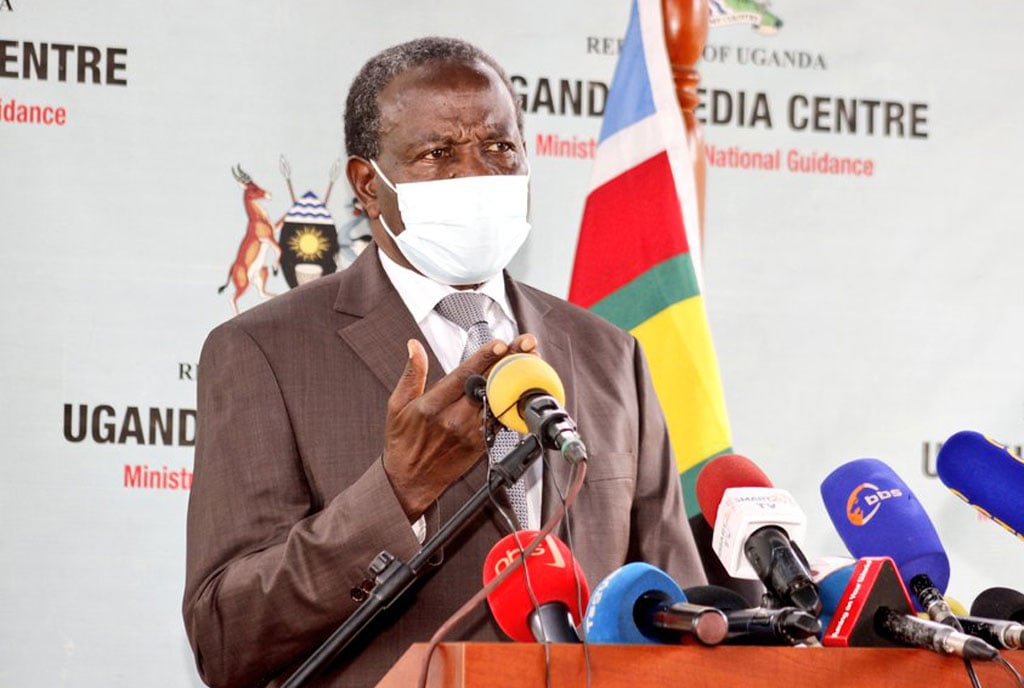Prime
Increase in commodity prices is beyond govt control, says minister Kasaija

Uganda's Minister of Finance, Planning and Economic Development Mr Matia Kasaija addresses journalists at the Uganda Media Centre on March 22, 2022. PHOTO/HANDOUT
What you need to know:
- Finance Minister Matia Kasaija partially attributed commodity price escalation to geo-political tensions that have disrupted supply of oil and cereals.
- Government is threatening to crackdown on people "taking advantage of the situation by hoarding essential commodities in order to create artificial supply shortages and drive up prices.”
“The main causes of increasing commodity prices are external and beyond the ability of policy makers in any one country to deal with,” Uganda’s finance minister said on Tuesday as he urged the public “not to panic.”
Ending February, Uganda’s headline inflation surged to 3.2%, up from 2.7% in January, according to Uganda Bureau of Statistics (UBOS).
"We should not alarm our people. This is a temporary situation that is going to subside sooner or later," finance minister Mr Matia kasaija said, adding that Uganda’s economic misery has been aggravated by Covid-19 and a raging Russia-Ukraine war in Kyiv.
Contrasting Uganda’s commodity-influenced inflation with America’s 40-year high consumer price index driven up to 7.9% in February, Mr Kasaija said the central bank is preparing policy interventions “to contain inflation within target and maintain macroeconomic stability.”
UBOS statistics further indicate that the price of laundry soap increased by 20% between December 2021 and February 2022. Prices of fuel, a major driver of Uganda’s struggling economy, shot up by 15.3% in the past 3 months and 34% during the past one year- significantly steadying the cost of petrol slightly over Shs5,000.
"To cushion consumers against high fuel prices, government is reconsidering its regulatory role in domestic fuel market to ensure that fuel price movements are a true reflection of the economic environment," he told journalists at a briefing in Kampala.
Government is also threatening to crackdown on people Mr Kasaija described as “unscrupulous speculators taking advantage of the situation by hoarding essential commodities in order to create artificial supply shortages and drive up prices.”
“We are also taking advantage of these global crises to boost our import substitution industrialization strategy," Mr Kasaija explained,
Early March, the Bank of Uganda (BoU) long-anticipated that inflation would accelerate in months ahead owing to the rises in energy and food prices.
But to mitigate that, Mr Kasaija says “they are working with the private sector to domestically produce some of these intermediate goods used to produce most of the affected goods such as cooking oil and soap.”
ALSO READ: War, inflation threaten world economy
With several world economies now reopened after Covid-19 lockdowns, a rise in global aggregate demand might only further pressure Uganda’s economy given the BoU-anticipated higher household spending.





